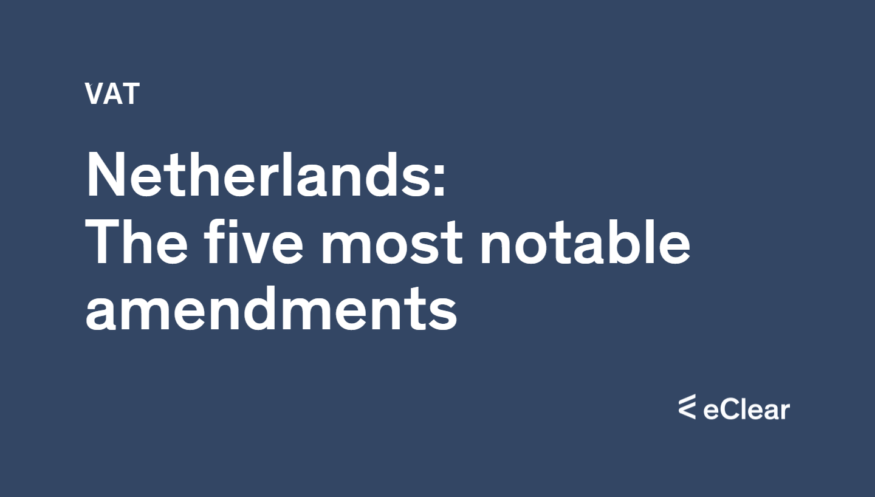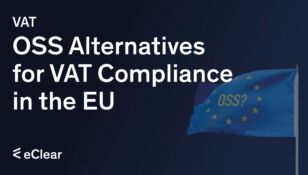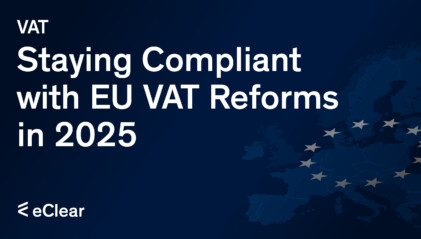1. Excise Duty Reforms in the Netherlands for 2023
The EU rules for requesting a refund of excise duty and sending excise goods within the EU will change in 2023.
Refund of Excise Duty
From 1 January 2023, a separate request for a refund of excise duty and consumption tax must be submitted electronically. The current offset in the excise duty declaration will no longer be valid.
Excise Transport
From 13 February 2023, the rules for sending excise goods within the EU will change. Companies sending excise goods will need a ‘Certified Consignor Permit’, and receiving companies in other EU Member States will need a ‘Certified Consignee Permit’. Both sender and recipient are required to declare the shipment in the Excise Movement and Control System (EMCS).
Emergency Procedure
The Dutch Customs announced that they are working on a timely solution until the Dutch part of EMCS has been updated and expanded. The automated procedure will apply for the transport of goods for which excise duty has not been paid. For the transport of excised goods, the emergency procedure will apply. Businesses will still need a ‘Certified consignor’s permit’ or ‘Certified consignee’s permit’.
2. BUA memorandum 2022
VAT Exclusion Act (BUA)
The Decree on the exclusion of VAT deduction – “BUA” – excludes the deduction of VAT on business gifts and employee benefits if provided free of charge or below cost by the entrepreneur. A threshold amount of €227 per beneficiary applies.
Threshold Amount
If the provisions’ total acquisition or production costs (the cost price) are less than €227 (excluding VAT) per beneficiary per year, no BUA adjustment must be made. This threshold amount is fatal, meaning that if exceeded, the input VAT on the benefits in kind within the threshold amount is also not deductible.
3. Transitional Rules for Building Sports Facilities
It is possible to invoke transitional rules when building sports facilities. Two new documents have been made public regarding the transitional regime when the VAT sports exemption changes as of 1 January 2019.
Transitional Rule
The transitional rule applies to the construction of sports facilities if a purchase and building contract was concluded before 1 January 2019 and construction started before that date. The new documents show that the Tax Administration only applied the condition that the realization of the construction must have started before 1 January 2019.
Alternative conditions
A Q&A from the Ministry of Health, Welfare, and Sport suggests alternative conditions rather than cumulative conditions. This means that other entrepreneurs can also invoke the transitional regime if a purchase-and-construction agreement has yet to be concluded before 1 January 2019. Still, the other conditions of the transitional regime have been met.
4. Adviser Liable for Inaccurate Advice on Intra-Group Management Activities Subject to VAT
The Civil Chamber of Gelderland District Court rules that an adviser, Accon bv, is liable for inaccurate advice on intra-group management activities subject to VAT. The court found that Accon bv committed an unlawful act in the context of VAT advice and failed to comply with the assignment agreement it entered into with the interested party, the X-group.
No General Terms and Conditions Agreed Upon
The court ruled that no general terms and conditions had been agreed upon between Accon bv and the X-group. Accon bv did not make it plausible that the X-group expressly accepted that Accon’s general terms and conditions would apply. It has yet to be made plausible that Accon bv referred to its general terms and conditions before or when giving and accepting the assignment.
Unsuccessful Consultation with Tax Authorities
The court found that the consultations with the Tax Authorities yielded a different result and that follow-up steps were still needed to achieve the intended effect. Having failed to do so, Accon bv was unable to comply with the assignment agreement it entered into with X-group.
Damages to be Determined
The court ordered Accon bv to compensate the damages suffered by the X-group as a result of the wrongful act. The outcome of the tax proceedings must be awaited to determine the number of damages.
5. EU Digital Platform Economy Data Exchange Directive Implementation Act in Official Gazette
The EU Digital Platform Economy Data Exchange Directive Implementation Act (DAC7) has been published in the Official Gazette. This act will primarily take effect from 1 January 2023.
The act regulates the implementation of European Directive 2021/514 of 22 March 2021, amending Directive 2011/16/EU on administrative cooperation in the field of taxation in Dutch legislation, and specifically in the Act on International Assistance in the Levying of Taxes (WIB) and the regulations based on it. The provisions in the WIB aim to implement regulations of international law and European directives on mutual assistance in the levying of taxes. The directive extends the tools for cooperation in the field of the digital economy. Among other things, the directive includes a uniform reporting requirement for platform operators.







